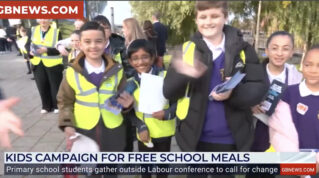Unions have signalled that they would give an incoming Labour government time to find its feet before expecting a decision on teacher pay for September.
With Sir Keir Starmer’s party odds-on to win the July 4 election, teacher pay will be one of the first big decisions facing Bridget Phillipson, who is likely to become the education secretary.
The Conservative government received the recommendations of the School Teachers’ Review Body (STRB) in May, but kicked any decision into the long grass when the election was called.
Unions have criticised education secretary Gillian Keegan for delaying a decision.
Pepe Di’Iasio, who leads the ASCL leaders’ union, said: “While we want to see a timely decision over teacher pay – because schools need to be able to budget for September – the first priority is that it is the right decision.”
That means a pay award “which addresses recruitment and retention, recognises that teachers need and deserve better remuneration after years of real-terms cuts, and is backed up with enough funding for schools to be able to afford the costs involved”.
“If the incoming government does not feel that it is going to be able to do this by the end of the summer term, then we’re very open to having that discussion,” Di’Iasio said.
‘A spirit of dialogue and cooperation’
Although inflation has recently fallen to 2 per cent, it stood at around 4 per cent when the STRB made its deliberations in the spring.
Department for Education analysis suggests that schools would be able to afford a rise of 2 per cent from their own budgets, although many leaders would say they cannot afford this.
Di’Iasio, who took the reins from Geoff Barton in April, said his union wanted to see a “spirit of dialogue and cooperation, and it will be incumbent on us to work in an equally positive way”.
“The teacher pay award will be the first big opportunity for this new relationship and it will set the tone for what follows.”
Paul Whiteman, of the NAHT, said he would expect a returning Tory administration to reach a decision quickly, given it had “already considered these points”.
But “any new administration is going to need some time, understandably, to consider what it is, and how any pay rise would be funded.
“And we would absolutely accept that they are given the right amount of time to do that, so the right decisions are made.”
However, he said a response was still needed “as soon as possible”. Any decision after September, for example, could involve back-dating pay and would further delay detailed budgeting.
Conservatives ‘deliberately delayed’ STRB
Dr Patrick Roach, general secretary of the NASUWT teachers’ union, said the current government “deliberately delayed the STRB process again this year, anticipating they might not be in position to have to deal with the outcomes”.

He added: “We want to see a new government that is willing to engage seriously on a range of matters of immediate concern to the profession, including the pay award for September. They will need to be afforded the opportunity to do so.”
The new government is likely to face the most pressure from the National Education Union, whose members voted at Easter to wait to hear the teachers’ pay offer for September before moving to a formal strikes ballot.
An amended motion passed at the union’s annual conference in Bournemouth instructed its executive to “intensify campaigning and mobilising our members prior to the government’s pay offer and funding settlement for 2024-25”.
The union should then “present the pay and funding offer to members in a snap poll, and if rejected with a convincing turnout, move to a formal ballot”.
Daniel Kebede, the NEU’s leader, said the incoming government “needs to deal with the issue of teacher pay immediately.
“The STRB process should have been concluded this spring. While this abdication of duty is down to Gillian Keegan, it does not mitigate against the fact that schools need to plan their budgets for the forthcoming academic year with the utmost urgency.”
Labour was approached for comment.















Everyone seems to forget that successive high levels of unfunded pay awards for school support staff, whilst deserved, have created more problems for school budgets than the much publicised teacher pay awards.